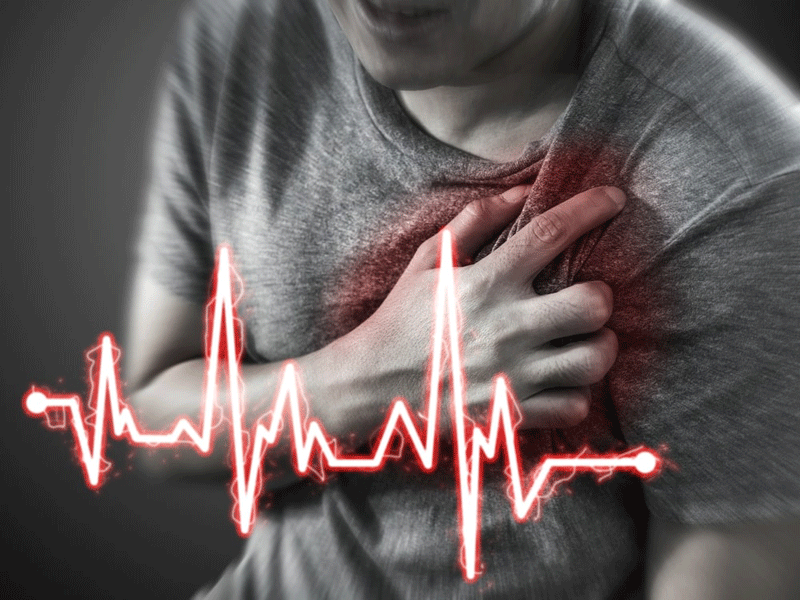Left arm pain is a condition that has perplexed the medical community and the common people for ages. Is it a benign muscle tension or a precursor to something more sinister? At the intersection of chest discomfort and tingling sensations in the left arm, one finds a complex interplay between the heart and anxiety. Understanding this nexus is crucial for those experiencing symptoms.
The Anatomy of Left Arm Pain
The arm, an intricate network of bones, muscles, and nerves, plays a crucial role in our daily activities. Each section has its unique structure and function from the shoulder to the wrist. Yet, the left arm often becomes a focal point of health concerns.
Why is the left arm a focal point of concern?
Historically and medically, discomfort in the left arm, especially combined with chest pain, has been a red flag. It beckons a deeper look into heart conditions. However, this same arm can also be a barometer for stress and panic, making it a double-edged sword.
Can Anxiety Cause Left Arm Pain?

Indeed, anxiety can manifest in various physical ways, including left arm pain. The body responds in kind when persistent worries and stress invade the mind. The connection between the central nervous system and muscular tension is undeniable. As anxiety levels escalate, muscle tension can augment, particularly in the neck, shoulders, and arms. This can result in a spectrum of sensations in the left arm, ranging from mild tingling to pronounced discomfort.
What are the Common Symptoms of Anxiety-Related Left Arm Pain?
While the spectrum is vast, certain hallmarks are indicative of anxiety-related arm pain:
- Tingling Sensation: Often described as a “pins and needles” feeling, this might start from the shoulder and extend down to the fingers.
- Dull Ache: Unlike the sharp pain associated with heart conditions, anxiety-induced pain often presents as a lingering, dull ache.
- Numbness: Parts of the arm, particularly the extremities like fingers, might feel numb or “heavy.”
- Muscle Tension: Upon touch, the arm muscles might feel harder or more contracted than usual.
- Temporary Discomfort: Unlike chronic pain caused by injuries or inflammation, anxiety-induced pain often dissipates once the anxiety decreases.
Read More About Benefits of Probiotics for Women
How Can I Differentiate Between Anxiety-Related Left Arm Pain and Other Causes?
The line of differentiation is as follows:
- Onset and Duration: Anxiety-related pain tends to be episodic, often linked with stress triggers. It might wane with relaxation. Heart-related or injury-induced pain, however, usually has a more abrupt onset and distinct duration.
- Associated Symptoms: Heart-related pain is frequently accompanied by other symptoms like chest discomfort, shortness of breath, or cold sweats. On the other hand, anxiety may present with heightened alertness, palpitations, or a sense of impending doom.
- Relief Mechanisms: Pain caused by anxiety might diminish with relaxation techniques or distractions, whereas other causes might need medical interventions for relief.
Are Any Specific Exercises or Stretches to Relieve Left Arm Pain Caused by Anxiety?
Absolutely. Engaging in exercises and stretches not only alleviates the pain but also serves as a distraction, further easing anxiety.
- Deep Breathing: While not a stretch, taking deep, deliberate breaths can help relax tightened muscles.
- Neck Tilts: Tilting your neck from side to side can release tension from the neck, often easing discomfort down the arm.
- Shoulder Rolls: Rolling your shoulders backward and forward in slow, deliberate motions can alleviate muscle tension.
- Arm Stretches: Extend your left arm out, palm facing down. With your right hand, gently press down on the left hand until a stretch is felt. Hold for 20-30 seconds and release.
- Wrist Flexor Stretch: With your left arm extended and fingers pointing upwards, use the right hand to gently pull the fingers back towards you, stretching the forearm.
Engaging in these exercises regularly, especially during moments of heightened anxiety, can offer much-needed respite from discomfort. However, always consult a health professional before starting any new exercise regimen.
Heart-Related Left Arm Pain

The heart, being its vital organ, communicates distress in diverse ways. Sometimes, it’s direct chest pressure, but often, the pain radiates or refers to other areas, notably the left arm.
Warning Signs of a Heart Attack
Recognizing these signs can be a life-saver.
- Discomfort in Other Parts of the Body: While the left arm is commonly affected, areas like the neck and shoulders might also show signs.
- Shortness of Breath: A difficulty in breathing, especially if sudden, warrants immediate attention.
- Cold Sweats and Dizziness: These could indicate your body sounding an alarm about your heart’s condition.
Angina: Not a Heart Attack, But a Warning
A precursory condition, angina is a discomfort that can be mistaken for a heart attack. However, the distinction is crucial.
- Difference between Stable and Unstable Angina: Stable angina follows a pattern triggered by exertion. Unstable angina, on the other hand, is unpredictable and far more dangerous.
Anxiety and Its Physical Symptoms

Anxiety isn’t just a state of mind. It profoundly impacts the body. Muscle tension, elevated heart rates, and even arm pain can result from heightened stress levels.
Common Physical Symptoms of Anxiety
- Trembling, Rapid Heartbeat, and More: It shows how profoundly our mental state can affect our body.
- Why the Left Arm Can Feel the Effects: Beyond heart issues, anxiety can cause muscles in the left arm to contract, leading to discomfort and even numbness.
Panic Attack vs. Heart Attack
Both conditions share unsettling similarities, making distinction critical. Shortness of breath, chest pain, and arm discomfort can be present in both, yet the underlying causes differ vastly.
Comparing Heart-Related and Anxiety-Induced Left Arm Pain
While heart-related pain is often abrupt and intense, anxiety-induced discomfort can be more gradual, lingering, and variable. Beyond the arm, symptoms can manifest in areas like the wrist or as a general feeling of malaise.
Read More About The Ultimate Guide to Combining Prebiotics and Probiotics for Gut Health
Risk Factors to Consider
Conditions such as carpal tunnel syndrome, injuries, or inflammation can also present with left arm pain, complicating the diagnosis. Your lifestyle choices, including diet and exercise, can mitigate or amplify the risks associated with heart and anxiety-related arm pain.
Diagnosis
Time is of the essence. Early diagnosis ensures better management, whether it’s heart-related or a result of anxiety.
- ECG, Stress Tests, and More: Modern medicine offers many diagnostic tools to pinpoint the exact cause of arm discomfort.
- Psychological Assessments for Anxiety: Sometimes, the root cause is not physical but psychological.
Treatment Options
For Heart-Related Left Arm Pain
- Medications, Surgeries, and Therapies: Treatments vary, from reducing inflammation to surgical interventions.
For Anxiety-Induced Pain
- Cognitive-Behavioral Therapy: A powerful tool to reframe and understand one’s anxiety.
- Medication Options and Natural Remedies: Many treatments are available, from traditional medications to holistic approaches.
Preventative Measures

These are as follows:
Maintaining Heart Health
- Regular Check-Ups, Healthy Diet, and Exercise: A proactive approach is the best defense against heart conditions.
Managing Anxiety
- Mindfulness Practices, Therapy, and Lifestyle Changes: From deep breathing exercises to mindfulness meditation, there’s a toolkit available to manage and reduce anxiety.
Conclusion
Our body is an intricate system, continually sending signals. Recognizing and interpreting these, especially concerning left arm pain, can be life-altering. Whether it’s a little discomfort or a more pronounced pain, understanding its originsthe heart, anxiety, or something else, ensures better health and peace of mind.